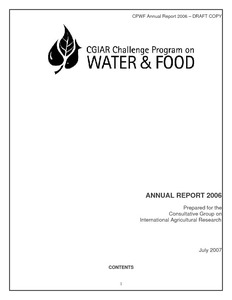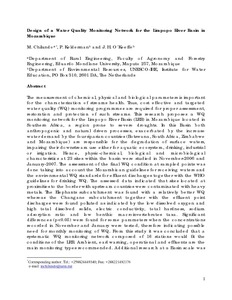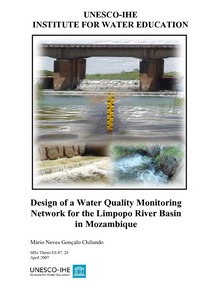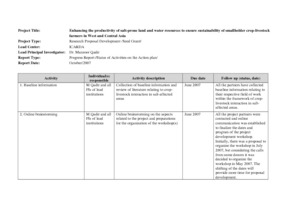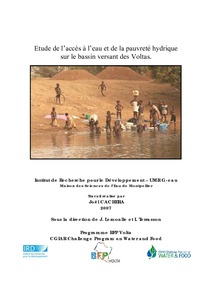CPWF Annual Report 2006
The CGIAR Challenge Program on Water and Food (CPWF) is a multi-institutional research for development program
that seeks to create and disseminate international public goods to improve the productivity of water in river basins in
ways that are pro-poor, gender equitable and environmentally sustainable. In doing so, CPWF contributes to efforts by
the global community to ensure that global diversions of water to agriculture are maintained at the level of the year
2000.

